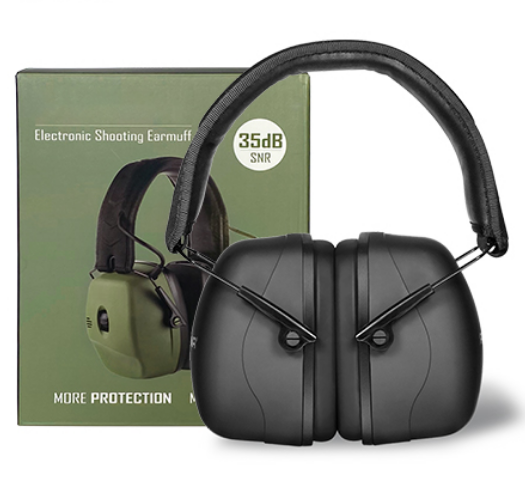Why Is It Important to Wear Hearing Protection?
Hearing protection is essential for preserving our auditory health and overall well-being. Prolonged exposure to loud noises, whether in the workplace or during recreational activities, can lead to permanent hearing damage or loss. In this comprehensive overview, we will explore the importance of wearing hearing protection, the potential consequences of failing to do so, and the various situations where hearing protection is crucial.
1. Preventing Noise-Induced Hearing Loss (NIHL):
The most significant reason for wearing hearing protection is to prevent Noise-Induced Hearing Loss (NIHL). NIHL occurs when the delicate hair cells inside the cochlea, the spiral-shaped structure in the inner ear responsible for converting sound vibrations into electrical signals, are damaged or destroyed due to exposure to excessively loud noises. These hair cells do not regenerate, leading to permanent hearing loss. By wearing hearing protection, we reduce the risk of damaging our hearing and ensure that we can enjoy clear and functional hearing throughout our lives.
2. Improving Overall Health and Well-being:
Hearing loss can significantly impact our overall quality of life. It can lead to social isolation, communication difficulties, and even cognitive decline in severe cases. By protecting our hearing, we can maintain our ability to engage with the world around us, enjoy social interactions, and stay connected to our loved ones.
3. Enhancing Job Performance and Safety:
In many work environments, employees are exposed to high levels of noise regularly. Industries such as construction, manufacturing, aviation, and entertainment are particularly prone to noise-related risks. By providing employees with appropriate hearing protection, employers can ensure their safety and well-being, leading to increased job performance and productivity.
EM028 Passive Safety Hearing Protector
4. Compliance with Occupational Safety Regulations:
In numerous countries, there are regulations and standards in place that require employers to provide suitable hearing protection to workers exposed to high noise levels. Compliance with these regulations is crucial for maintaining a safe and legally compliant workplace.
5. Preserving Hearing in Recreational Activities:
Hearing protection is equally vital during recreational activities that involve loud noises. Activities like attending concerts, shooting firearms, riding motorcycles, or using power tools can expose individuals to noise levels that could cause permanent hearing damage. Wearing appropriate ear protection in these situations helps preserve hearing and ensures that these enjoyable activities do not lead to long-term consequences.
6. Protecting Children's Hearing:
Children's ears are especially sensitive to loud noises, and hearing damage in childhood can have long-lasting effects on their development and learning. It is essential to ensure that children are adequately protected from loud noises, whether in school settings, concerts, or other recreational activities.
7. Encouraging a Culture of Hearing Health:
Promoting the use of hearing protection fosters a culture of hearing health and safety. When individuals prioritize their hearing health and actively use hearing protection, it sets an example for others, leading to a more conscientious approach to protecting one's hearing within communities and organizations.
Types of Hearing Protection:
There are various types of hearing protection available, catering to different needs and situations:
1. Earplugs: Disposable or reusable earplugs made of foam, silicone, or rubber can be inserted into the ear canal to block out noise. They are suitable for various activities and are often compact and portable.
2. Earmuffs: Earmuffs are designed to cover the entire outer ear and form a seal to block out noise. They are easy to put on and take off and can be worn over other headgear, such as helmets or hats.
3. Custom-Made Earplugs: These earplugs are individually molded to fit the user's ears perfectly. They provide a more comfortable and secure fit, making them ideal for extended wear.
4. Electronic Hearing Protection: Some advanced hearing protection devices utilize technology that allows for normal hearing while also protecting against loud noises. They use microphones and speakers to amplify ambient sounds while automatically reducing volume levels when loud noises are detected.
Conclusion:
Wearing hearing protection is a fundamental aspect of preserving our hearing health and overall well-being. It not only helps prevent noise-induced hearing loss and tinnitus but also enhances job performance, safety, and psychological health. Whether in the workplace or during recreational activities, it is crucial to prioritize hearing protection to ensure that we can continue to enjoy clear and functional hearing throughout our lives. By adopting a culture of hearing health and promoting the use of appropriate hearing protection, we can protect our ears and encourage others to do the same, creating a safer and more hearing-conscious society.
If you want to know more information about hearing protection, please contact us. We will provide professional answers.

评论
发表评论